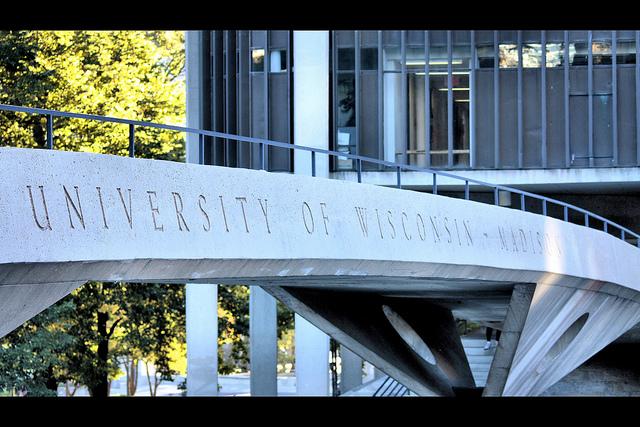The University of Wisconsin System Board of Regents voted April 9 to remove a 2002 policy that imposed a surcharge on students who accumulate too many credits on all campuses except UW-Madison.
Regent Edmund Manydeeds III said the decision was based on a presentation showing the policies do not fulfill their goal of improving graduate outcomes. Rather, the policies increase student debt, creating the most adverse impact on first-generation and low-income students, according to the meeting materials.
“This particular policy was not accomplishing its goal,” Manydeeds said. “Students who were going longer were just accumulating more debt, and they weren’t graduating, so that wasn’t a good thing. We want students to graduate without accumulating more debt than they have to, by graduating on time.”
In rescinding this UW System policy, the Board also authorized the UW-Madison Chancellor to develop a UW-Madison policy dealing with the assessment of a surcharge for students who accumulate 165 credits or 30 credits more than required for their degree program, according to the meeting materials.
UW-Madison requested authority to continue using the excess credit surcharge because the surcharge provides an incentive for students to complete their degrees in a timely manner and a push to students who might be avoiding the completion of their studies, according to the meeting materials.
UW-Madison Vice Provost of Academic Affairs Jocelyn Milner said the policy was used a handful of times within the last 20 years. Though the university rarely applies it, the policy makes an important statement, according to Milner.
“We think students have ample time to graduate at a certain point,” Milner said. “165 credits is a pretty good amount of credits for 120 credit programs, and I think sometimes life gets in the way and there are good reasons why a student is still working at that point.”
Milner said the new UW-Madison policy is an enabling policy, meaning it does not automatically apply the surcharge but allows it to be placed.
Sometimes there are extenuating circumstances legitimately explaining why a student might reach that level of credit accumulation, Milner said. For instance, students that are already far along in a program who realize their academic goals have changed may end up accumulating a good number of credits, Milner said.
“That could mean that they have to make a transition and fill in some requisites,” Milner said. “A legitimate, academic change of course seems to be the most common thing that causes someone to get to that high level.”
Milner also said an accumulation of extra certificates and majors can cause students to reach high credit numbers.
Associated Students of Madison Chair Matthew Mitnick said in a written statement to The Badger Herald he thinks the Regents’ decision to eliminate this policy on all campuses except UW-Madison is ridiculous.
“The UW System supposedly prides itself on treating all campuses equally, but by leaving UW-Madison out of the surcharge elimination in cases in which credits are exceeded as stated, this unfairly impacts students,” Mitnick said in the statement.
Mitnick said UW-Madison is using this policy to make more profits and dissuade students from staying on campus longer. For instance, because classes fill up so quickly, students may accumulate more credits because they are unable to take certain classes required for their degree, Mitnick said.
During non-COVID-19 times, incoming international students were last to enroll for classes at SOAR, leaving them few options in class selection and leading them to be disproportionately impacted, according to Mitnick.
ASM pushes UW to provide additional financial relief to students during pandemic
“Students who had the financial resources in high school to take AP classes for college credit are placed at an advantage, as they have more credits to work with going in,” Mitnick said in the statement. “Students who either could not afford to take these tests or did not go to schools that offered these classes are severely disadvantaged, being forced to maximize credit loads in order to graduate on time.”
Milner said the policy was created with a student-centered intention.
Its pacing is important in supporting students to be successful by moving them through their programs and providing them with the learning they need before taking their degree to achieve the rest of their ambitions, Milner said.
“You’re much better as a student to graduate and then take your degree out into the world and do things with it,” Milner said. “If you want to stay in school an extra year, you might be better served with a Master’s program rather than staying longer in a Bachelor’s program.”
Milner said UW-Madison saw a shortened time-to-degree average over the past few years which means the university can enroll more students.
Mitnick said the university could open up more spots for prospective students without this policy. UW-Madison already does this with each incoming class to increase profits, Mitnick said.
“There is no reason UW-Madison should not eliminate the surcharge,” Mitnick said. “If all the other campuses can [rescind] this policy, then UW-Madison should too.”

















